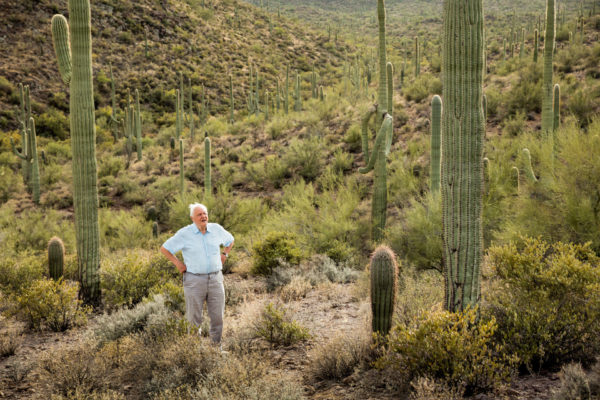Climate Tech: Inventions That Could Save The Planet
By
2 years ago
We can make a difference

It’s not all doom and gloom, says Springwise’s James Bidwell – here are seven pieces of climate tech that could save the planet.
This article is featured in our Great British Brands 2023 book. Check out the digital edition here or grab a physical copy today.
7 Brilliant Inventions In The Climate Tech Sphere
1. A network which monitors environmental disasters in real-time
Created by Australian technology firm Attentis, a network of sensors collects and delivers vital data, which has already improved local agriculture, utilities, and forest industries – as well as emergency responses to fires and floods. attentistechnology.com
2. Autonomous robots that collect seafloor litter
Using a combination of clever robotics and machine learning, a new system developed by EU-funded SeaClear will be able to locate and remove marine debris more efficiently than ever before. seaclear-project.eu
3. Using rock dust to extract CO2 from the air
A new study by researchers at the University of Sheffield shows that adding basalt rock dust to soil could boost the soil’s ability to extract carbon dioxide from the air. sheffield.ac.uk
4. A methane-reducing additive for use in animal feed
Reducing methane emissions from agriculture is vital for keeping global warming below 2°C – so Dutch biosciences company Royal DSM has created a product to tackle the issue at its source. dsm.com
5. AI-powered beehives protect the bee population
More than 30 percent of US crops need bee pollination, making bee health essential for protecting the environment. Hi-tech hives created by Israeli company, Beewise, are equipped with sensors that monitor the health and activity of the bees inside while robots dispense sugar, medicine, and honey. beewise.ag
6. Minecraft game teaches Gen-Z about climate change
Finding a way to bring real-world lessons to gaming, digital education company, UK-located Skewb Climate, is making climate change action relevant, understandable, and actionable to a key audience group. skewbclimate.co.uk
7. Producing ‘carbon negative’ cement
With cement production accounting for eight percent of global greenhouse gas emissions, a research team at the US University of Colorado, Boulder, has developed an alternative made using micro-algae. colorado.edu







